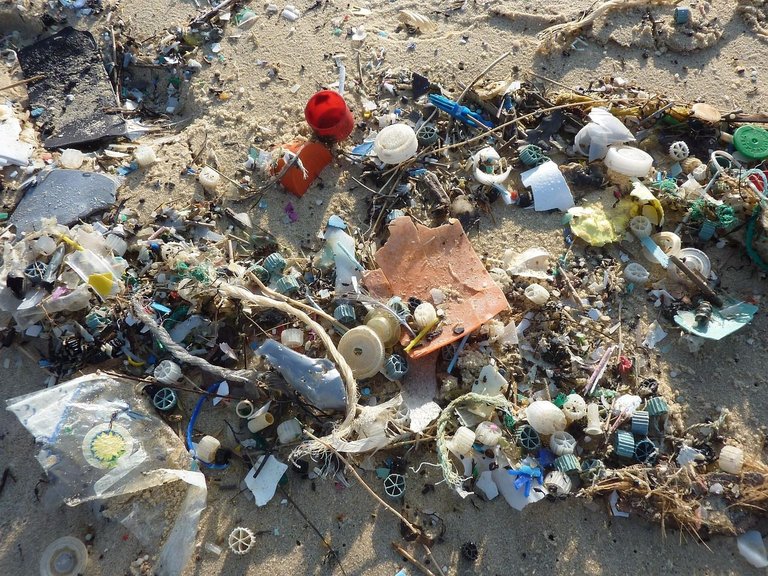A Silent Crisis
The technological advances in today’s world are at breakneck speed and cities are growing taller by the day, There's an unseen crisis that demands our attention. It's not a sensational headline or a blockbuster movie plot, but it's equally, if not more, consequential: the state of our environmental health. In this interactive article, we'll delve into the intricate relationship between the environment and human well-being. Together, we'll unveil the hidden threats in the air we breathe, the water we drink, and the changing climate that impacts us all.
AIR
The air we breathe, so often taken for granted, is the very essence of life. With every inhalation, our lungs draw in a delicate balance of oxygen, essential for our survival, and the invisible particles of our environment. But what happens when this balance tips, when the air we depend on becomes compromised? Our atmosphere, once pristine, now carries the weight of industrialization, transportation, and countless human activities. These factors have led to a concerning decline in air quality, resulting in a direct threat to our well-being. Environmental pollution releases a cocktail of pollutants into the air we breathe. Fine particulate matter, toxic gases, and volatile compounds infiltrate our lungs, affecting us in ways we might not even notice at first.
The Unseen Consequences: Breathing in polluted air can have insidious effects on our health. It's not just about the immediate discomfort of smoggy skies; it's about the long-term consequences. Air pollution has been linked to a range of health issues, from respiratory diseases like asthma and bronchitis to more severe conditions like heart disease. Beyond the visible haze, air pollution poses a less conspicuous threat: cognitive decline.
Studies reveal a troubling connection between exposure to pollutants and adverse effects on brain health. Fine particulate matter, often found in polluted air, can infiltrate our bloodstream and reach the brain, potentially leading to memory problems, decreased cognitive abilities, and an increased risk of conditions like dementia. Protecting our cognitive well-being means not only cleaning up our environment but also safeguarding our mental faculties from the subtle dangers that lurk in the air we breathe.
A Call to Action: As we become increasingly aware of these threats, it's our responsibility to take action. By understanding the quality of the air we breathe and the hazards that lurk within, we can make informed choices to protect our health and the environment. Together, we can strive for cleaner, healthier air and a brighter future for generations to come.
Water
Water, the elixir of life, flows through our bodies, quenching our thirst and sustaining our existence. Dive into the world of water quality:
Water is an essential and remarkable substance that plays a vital role in the human body. Its functions are diverse and indispensable, influencing various physiological processes crucial to our health and well-being.
Water makes up a significant portion of our body, and staying properly hydrated is essential for survival. It helps maintain the balance of bodily fluids, ensuring that our cells and organs function optimally. It acts as a transportation system, carrying essential nutrients and oxygen to cells throughout the body. It also aids in the removal of waste products and toxins through urine. When we get hot, we sweat to dissipate excess heat, helping us maintain a stable body temperature.
What about food? It assists in breaking down food, aiding in the absorption of nutrients in the digestive tract.
Pollutants like heavy metals, industrial chemicals, and pathogens can find their way into water sources. When consumed, these contaminants can lead to a range of health issues, from gastrointestinal problems to chronic diseases. Pollution in water doesn't just harm humans; it disrupts aquatic ecosystems. Polluted water bodies can lead to fish kills and the degradation of aquatic habitats.
Chronic exposure to polluted water can have severe long-term health consequences. It may lead to conditions such as cancer, developmental disorders, and hormonal imbalances in humans.
Efforts to reduce environmental pollution, particularly in water sources, are crucial to safeguarding this invaluable resource and protecting the health of both ecosystems and humanity. These efforts include stricter environmental regulations, improved waste management practices, and the promotion of sustainable water use.
As we wrap up, the intricate web of environmental health and human well-being, one truth becomes clear: we hold the power to shape our future. The invisible threats to our health can become visible opportunities for change.
By understanding the connections between the environment and our well-being, taking informed actions, and advocating for a healthier planet, we can ensure a brighter, cleaner, and healthier future for generations to come.
THANKS FOR STOPPING BY.
REFERENCES
- Holdgate, M. W. (1979). A perspective of environmental pollution. Cambridge University Press.
- Fayiga, A. O., Ipinmoroti, M. O., & Chirenje, T. (2018). Environmental pollution in Africa. Environment, development and sustainability, 20, 41-73.
- Peirce, J. J., Vesilind, P. A., & Weiner, R. (1998). Environmental pollution and control. Butterworth-Heinemann.

Most of the time, what we are not aware is our environment influence our health state and overall our general well-being
many do not realize that as humans and living things, we are actually delicate, Our bodies operate on a delicate balance that is easily tilted by inputs from the surrounding environment, this buttresses the need for maintaining a clean one